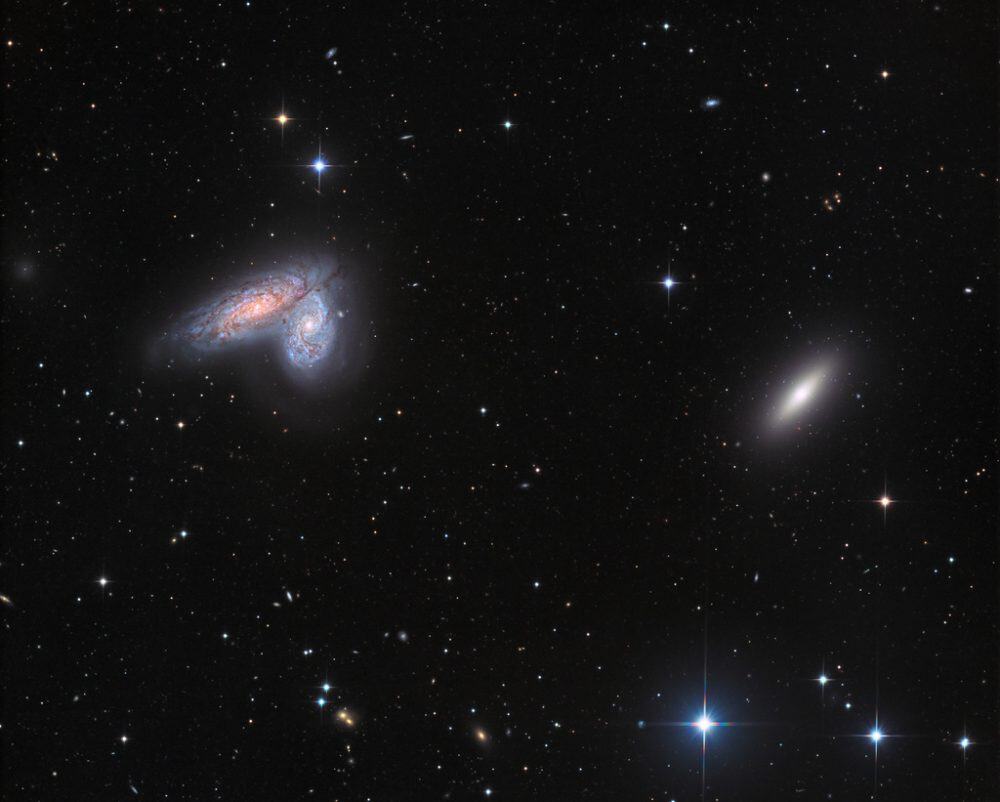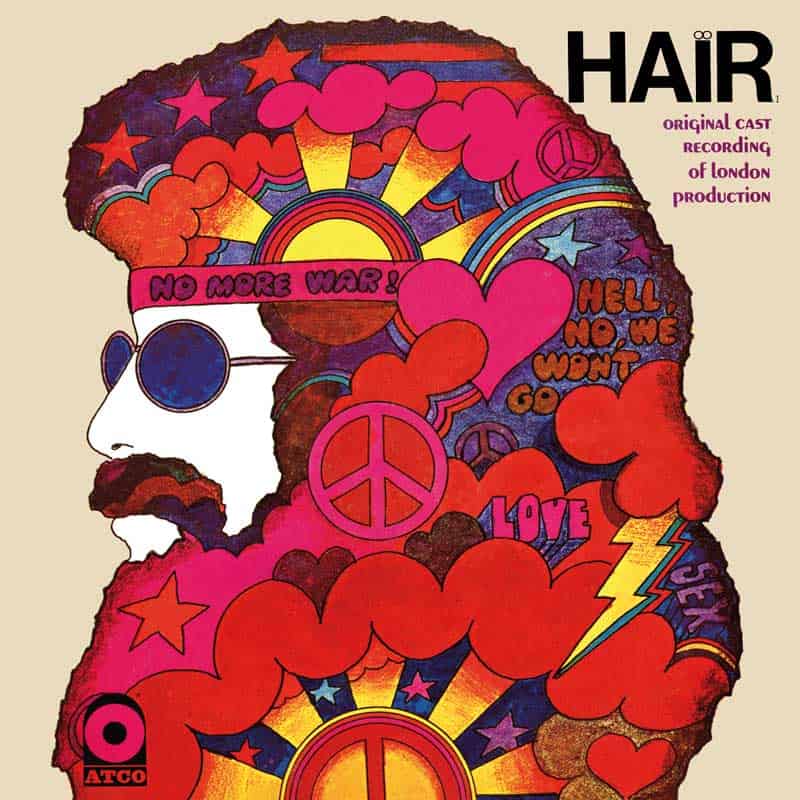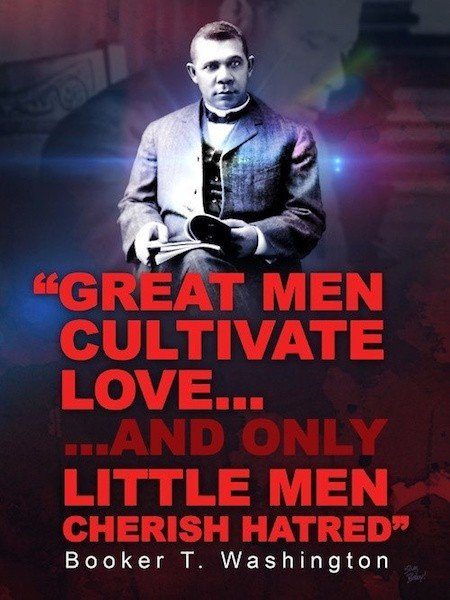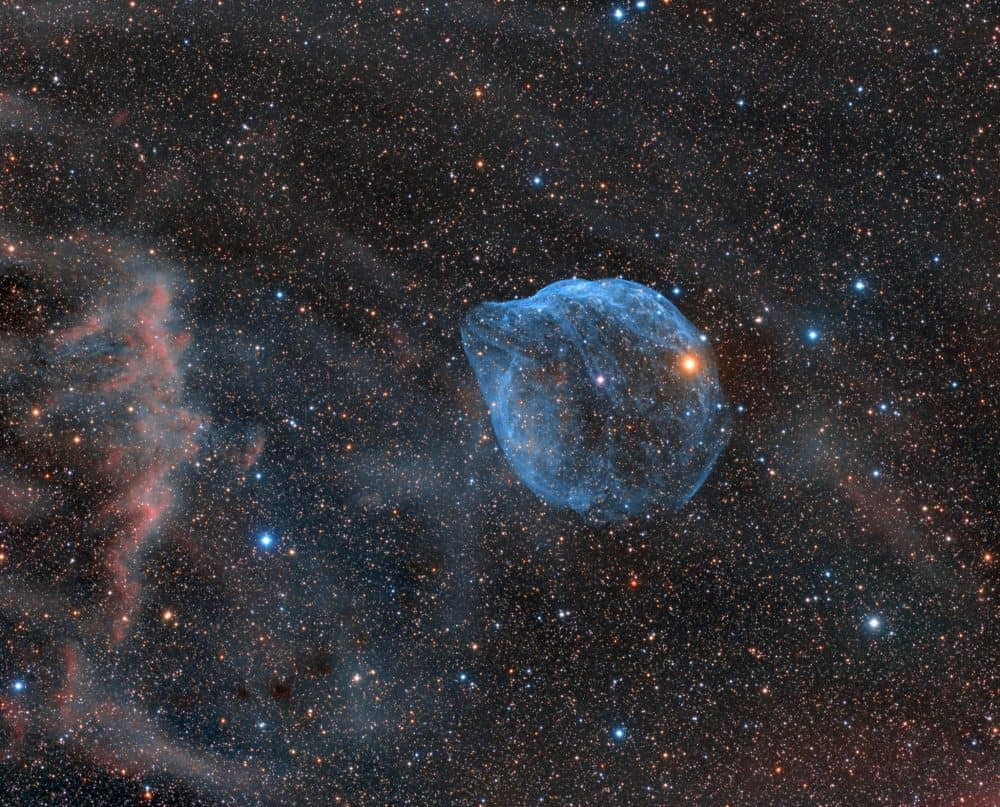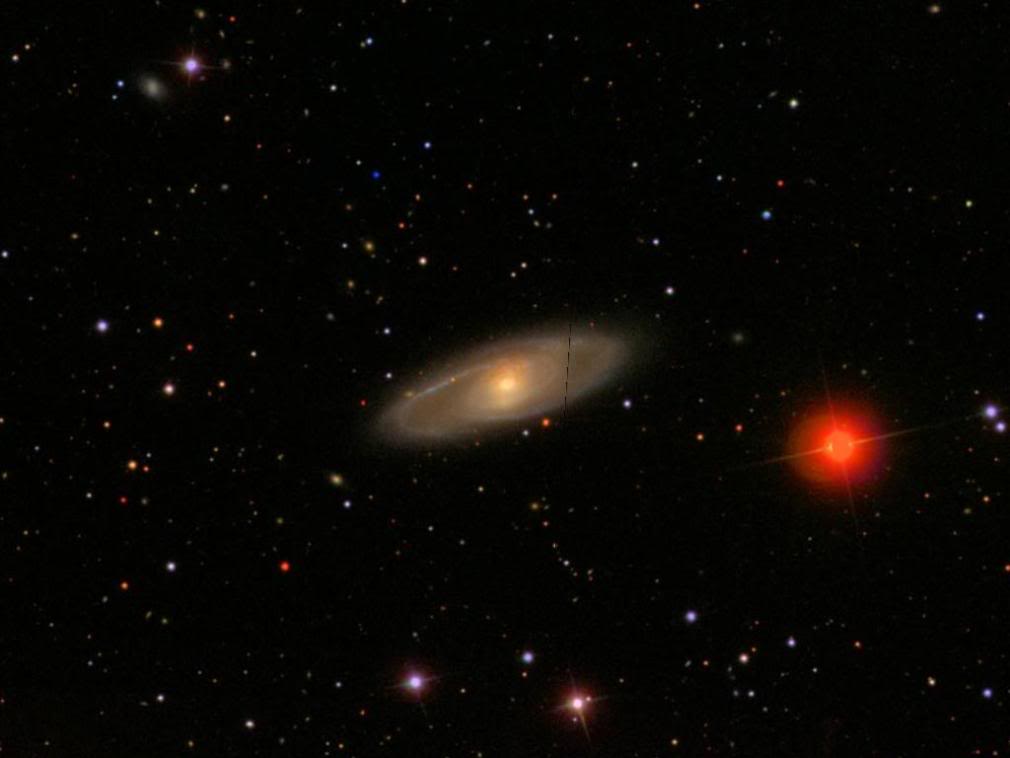Blog
Spiral galaxy pair NGC 4567 and NGC 4568 share this sharp cosmic vista with lonely elliptical galaxy NGC 4564. All are members of the large Virgo Galaxy Cluster. With their classic spiral arms, dust lanes, and star clusters, the eye-catching spiral pair is also known as the Butterfly Galaxies or the Siamese Twins. Very close together, the galaxy twins don’t seem to be too distorted by gravitational tides. Their giant molecular clouds are known to be colliding though and are likely fueling the formation of massive star clusters. The galaxy twins are about 52 million light-years distant, while their bright cores appear separated by about 20,000 light-years. Of course, the spiky foreground stars lie within our own Milky Way.
more...Joshua Redman (born February 1, 1969) is an American jazz saxophonist and composer.
In 1991, he won the Thelonious Monk International Jazz Saxophone Competition.
Joshua Redman was born in Berkeley, California, to jazz saxophonist Dewey Redman and dancer and librarian Renee Shedroff. He was exposed to many kinds of music at the Center for World Music in Berkeley, where his mother studied South Indian dance. Some of his earliest lessons in music and improvisation were on recorder with gamelan player Jody Diamond. He was exposed at an early age to a variety of musics and instruments and began playing clarinet at age nine before switching to what became his primary instrument, the tenor saxophone, one year later. Redman cites John Coltrane, Ornette Coleman, Cannonball Adderley, his father Dewey Redman, as well as the Beatles, Aretha Franklin, the Temptations, Earth, Wind and Fire, Prince, the Police and Led Zeppelin as musical influences.
Joseph Leslie “Joe” Sample (February 1, 1939 – September 12, 2014) was an American pianist, keyboard player, and composer. He was one of the founding members of the Jazz Crusaders, the band which became simply the Crusaders in 1971, and remained a part of the group until its final album in 1991 (not including the 2003 reunion album Rural Renewal).
Beginning in the 1970s, he enjoyed a successful solo career and guested on many recordings by other performers and groups, including Miles Davis, George Benson, Jimmy Witherspoon, B. B. King, Eric Clapton, Steely Dan, Joni Mitchell, and the Supremes. Sample incorporated jazz, gospel, blues, Latin, and classical forms into his music.
Sample was born in Houston, Texas, on February 1, 1939. Sample began to play the piano at age 5. He was a student of the organist and pianist Curtis Mayo.
In high school in the 1950s, Sample teamed up with friends saxophonist Wilton Felder and drummer “Stix” Hooper to form a group called the Swingsters. While studying piano at Texas Southern University, Sample met and added trombonist Wayne Henderson and several other players to the Swingsters, which became the Modern Jazz Sextet and then the Jazz Crusaders, in emulation of one of the leading progressive jazz bands of the day, Art Blakey‘s Jazz Messengers. Sample never took a degree from the university; instead, in 1960, he and the Jazz Crusaders made the move from Houston to Los Angeles. He was a member of Phi Beta Sigma fraternity.
more...Joe “Tricky Sam” Nanton (February 1, 1904 – July 20, 1946) was an American trombonist with the Duke Ellington Orchestra.
From 1923 to 1924, Nanton worked with Frazier’s Harmony Five. A year later, he performed with Snowden. At the age of 22, Nanton found his niche in Duke Ellington’s Orchestra when he reluctantly took the place of his friend Charlie Irvis in 1926, and remained with Ellington until his early death in 1946. Nanton, along with Lawrence Brown, anchored the trombone section.
Nanton was one of the great pioneers of the plunger mute. In 1921, he heard Johnny Dunn playing the trumpet with a plunger, which Nanton realized could be used to similar effect on the trombone. Together with Ellington’s trumpeter Bubber Miley, Nanton is largely responsible for creating the characteristic Wah-wah, or wa-wa, effect. Their highly expressive growl and plunger sounds were the main ingredient in the band’s early “jungle” sound that evolved during the band’s late 1920s engagement at Harlem‘s “Cotton Club“. According to Barney Bigard, Nanton “grabbed his plunger. He could use that thing, too.
more...
World Music on Flamenco Fridays featuring a slow Bulerias
Bulería (Spanish pronunciation: [buleˈɾi.a(s)]; interchangeable with the plural, bulerías) is a fast flamenco rhythm in 12 beats with emphasis in two general forms as follows:
HAIR counter cultural musical Opening Night
Thursday 1-31-19 730pm 2 Acts Running thru 2-10-19
Mixed Blood Theater-West Bank-Minneapolis
Music by Stephen Houtz, JD Lee and mick laBriola
more...
Blown by fast winds from a hot, massive star, this cosmic bubble is huge. Cataloged as Sharpless 2-308 it lies some 5,200 light-years away toward the constellation of the Big Dog (Canis Major) and covers slightly more of the sky than a Full Moon. That corresponds to a diameter of 60 light-years at its estimated distance. The massive star that created the bubble, a Wolf-Rayet star, is the bright one near the center of the nebula. Wolf-Rayet stars have over 20 times the mass of the Sun and are thought to be in a brief, pre-supernova phase of massive star evolution. Fast winds from this Wolf-Rayet star create the bubble-shaped nebula as they sweep up slower moving material from an earlier phase of evolution. The windblown nebula has an age of about 70,000 years. Relatively faint emission captured in the expansive image is dominated by the glow of ionized oxygen atoms mapped to a blue hue. SH2-308 is also known as The Dolphin Nebula.
more...Charles Douglas “Charlie” Musselwhite (born January 31, 1944) is an American electric blues harmonica player and bandleader, one of the white bluesmen who came to prominence in the early 1960s, along with Mike Bloomfield and Paul Butterfield, or bands such as Canned Heat. He has often been identified as a “white bluesman”. Musselwhite was reportedly the inspiration for Elwood Blues; the character played by Dan Aykroyd in the 1980 film The Blues Brothers.
At the age of three, Musselwhite moved to Memphis, Tennessee. When he was a teenager, Memphis experienced the period when rockabilly, western swing, and electric blues were combining to give birth to rock and roll. That period featured Elvis Presley, Jerry Lee Lewis, Johnny Cash, and lesser-known musicians such as Gus Cannon, Furry Lewis, Will Shade, and Johnny Burnette. Musselwhite supported himself by digging ditches, laying concrete and running moonshine in a 1950 Lincoln automobile. This environment was a school for music as well as life for Musselwhite, who eventually acquired the nickname Memphis Charlie.[6]
In true bluesman fashion, Musselwhite then took off in search of the rumored “big-paying factory jobs” up the “Hillbilly Highway”, Highway 51 to Chicago, where he continued his education on the South Side, making the acquaintance of even more legends, including Lew Soloff, Muddy Waters, Junior Wells, Sonny Boy Williamson, Buddy Guy, Howlin’ Wolf, Little Walter, and Big Walter Horton. Musselwhite immersed himself completely in the musical life, living in the basement of and occasionally working at Jazz Record Mart (the record store operated by Delmark Records founder Bob Koester) with Big Joe Williams and working as a driver for an exterminator, which allowed him to observe what was happening around the city’s clubs and bars. He spent his time hanging out at the Jazz Record Mart, at the corner of State and Grand, and a nearby bar, Mr. Joe’s, with the city’s blues musicians, and sitting in with Williams and others in the clubs, playing for tips. There he forged a lifelong friendship with John Lee Hooker; though Hooker lived in Detroit, Michigan, the two often visited each other, and Hooker served as best man at Musselwhite’s third marriage. Gradually Musselwhite became well known around town.
more...Philip Glass (born January 31, 1937 Baltimore, MD) is an American composer. He is widely regarded as one of the most influential musicians of the late 20th century. Glass’s work has been described as minimal music, having similar qualities to other “minimalist” composers such as La Monte Young, Steve Reich, and Terry Riley. Glass describes himself as a composer of “music with repetitive structures”, which he has helped evolve stylistically.
Glass founded the Philip Glass Ensemble, with which he still performs on keyboards. He has written numerous operas and musical theatre works, twelve symphonies, eleven concertos, eight string quartets and various other chamber music, and film scores. Three of his film scores have been nominated for Academy Awards.
https://www.youtube.com/watch?v=qwPid_NAjoA
more...Roosevelt Sykes (January 31, 1906 – July 17, 1983) was an American blues musician, also known as “The Honeydripper“.
In 1929 he was spotted by a talent scout and sent to New York City to record for Okeh Records. His first release was “44 Blues” which became a blues standard and his signature song.He soon began recording for different labels under various names, including Easy Papa Johnson, Dobby Bragg, and Willie Kelly (for Victor Records from 1930 to 1933). During this period he befriended another blues musician, the singer Charlie “Specks” McFadden, and accompanied him on half of the McFadden’s recordings. After he and Oden moved to Chicago, Sykes found his first period of fame when he signed a contract with Decca Records in 1934. In 1943, he signed with Bluebird Recordsand recorded with the Honeydrippers. Sykes and Oden continued their musical friendship into the 1960s.
In Chicago, Sykes began to display an increasing urbanity in his songwriting, using an eight-bar blues pop gospel structure instead of the traditional twelve-bar blues. Despite the growing urbanity of his style, he gradually became less competitive in the post–World War II music scene. After his contract with RCA Victor expired, he recorded for smaller labels, such as United, until his opportunities ran out in the mid-1950s.
Sykes left Chicago in 1954 for New Orleans as electric blues was taking over the Chicago blues clubs. When he returned to recording in the 1960s, it was for labels such as Delmark, Bluesville, Storyville and Folkways, which were documenting the quickly passing blues history. He lived out his final years in New Orleans, where he died from a heart attack on July 17, 1983
more...Cliff passed away on 1-29-19
He was a friend of mine and had tuned my old second double tenor set of pans. I met him when he played with Shangoya in the 80’s. A wonderful musician and steel pan maker and tuner. He had taught at St Paul Central HS and formed the Compas Steel Drum Band. He is father of Minneapolis musician Brian Alexis.
Clifford Alexis has come to represent quality and innovation for steelpan builders, tuners, educators, performers, and aficionados. He is known the world over as a steelpan builder/tuner of the highest echelon, a skilled performer, a creative composer and arranger, and one with a natural ability to teach and inspire students from all walks of life.
Born on January 15, 1937 in Trinidad, Alexis was tragically orphaned at a young age and raised by relatives. While attending Catholic school, Alexis was magnetically attracted to the steelbands in his east Port of Spain neighborhood. By age eight Alexis was a regular in the panyards and hid the fact from his family that he was sneaking into Hill 60’s panyard. Trinidadian steelbands of this time period were ensconced in pseudo gang warfare, and it was considered “risky business” to even be associated with anyone from the art form. Nonetheless, these panmen were innovating daily, and in order to learn, Alexis recalls, “I had to hang out with some pretty shady characters, but they had skills.”
As a teenager, Alexis moved to the west side of Port of Spain and joined the Hit Paraders steelband located a stone’s throw from Invaders’ legendary panyard. Alexis remembers being chased out of Invaders panyard by Ellie Mannette saying, “All you Hit Paraders doh come here no more…all you does do is take the tune and carry it down Ana Street.”
From Hit Paraders, Alexis moved to the Tripoli steelband and then to what he refers to as his “real education” with Invaders steelband and its many pioneering panmen. According to Alexis, “In Invaders I was standing next to people like Errol Zephyrine and Emmanuel ‘Cobo Jack’ Riley, who was the first real improviser on pan.”
Despite never having a single formal music lesson of any kind, by the early1950s the youthful, self-taught Alexis started earning a reputation as a great player and arranger. He began arranging for various steelbands the likes of Stereophonics and Joyland Synco who, like Tripoli steelband, recruited him after hearing him play with Invaders. “Everyone wanted to emulate what Invaders were doing,” Alexis explains, “so scouts would come to Invaders panyard looking for arrangers.”
The 1960s saw Alexis’s professional career blossom in Trinidad and abroad. In 1964 he was selected to join the National Steelband Orchestra of Trinidad and Tobago, which gave Alexis his first taste of foreign travel to the United States, South America, Europe, Africa, and greater Caribbean. Alexis was enthralled with the United States and, like many Trinidadians during this time, decided to move there and try to make a living as a professional musician. In 1965 he moved to New York City and began playing and arranging for the BWIA Sunjets steelband. In 1967 Alexis joined the Tripoli steelband in Montreal for the Expo ’67 World’s Fair and performed with the flamboyant pianist Liberace. Alexis had impressed Liberace’s agent during Expo ’67, and shortly thereafter he formed the Cliff Alexis Trinidad Troubadours. The agent booked tours throughout the western United States which lasted until 1972.
Prior to 1972 Alexis had yet to build a steelpan, tune a steelpan, or teach a student. In 1972 Alexis moved to Minneapolis in order to join his family and settle down after five years of constant touring. An opportunity presented itself when someone asked Alexis if he could teach steelpan to inner city kids at St. Paul Central High School. Despite his lack of any formal music education, the faculty auditioned Alexis by observing him work with the students. A natural teacher, Alexis charmed everyone with his ability to relate to even the toughest of disadvantaged students. He understood their background, their talent, and never doubted their ability to create music. During his tenure at St. Paul, Alexis built a thriving steelband program and received many awards including the prestigious Minnesota Outstanding Black Musician award in 1983 and 1984. Several of these St. Paul graduates (such as the pop group Mint Condition) went on to become professional musicians as a direct result of Alexis’s caring nature.
Alexis faced a major equipment hurdle, however, and this unique situation was a blessing. At the time he was hired the school had no steelpans, so Alexis called upon Patrick Arnold—his longtime musician friend and tuner—to assist. “Patrick came to Minnesota while I was there,” Alexis recalls. “Basically he and I worked together. This is where I got my first building and tuning experiences.”
The realities of the situation were clear, and Arnold convinced Alexis that if he wanted drums, he should learn to make them himself. Taking his friend’s advice, Alexis did just that and learned the labor of love with every perfectionist stroke that has made him one of the leading pan makers of the world today.
“One does not become a pan maker overnight,” Alexis recalls. “I threw away a lot of instruments that others might consider to be playable. If you think you can learn this art form quickly, you will surely go crazy. You learn from each drum you make, and just when you think you have it down to a science and get cocky about it, a piece of metal will put you in your place.”
This healthy attitude is what makes Alexis’s drums so special. As a player first, he knew exactly what sound he wanted to get from a steelpan, and his abilities and dedication as a craftsman helped him realize the desired sound.
Others were listening, too. Around 1973, Chief Cal Stewart of the U.S. Navy Steel Band heard the quality of Alexis’s steelpans, hired him to tune for the band, and purchased an entire set of instruments. As fate would have it, another important figure in the steelband world, G. Allan O’Connor from Northern Illinois University (NIU) happened to hear the U.S. Navy Steel Band and approached the members inquiring who had tuned their instruments. Their reply: “Clifford Alexis from St. Paul, Minnesota.” By this time, Alexis’s reputation as a steelpan builder and tuner was widely known across the United States and the Caribbean, and when O’Connor finally tracked down Alexis several years later, the two men formed an instant friendship. For the next few years the pair drove steelpans back and forth, or met halfway between St. Paul and Chicago.
In 1985, the robust steelband program at NIU was at a crossroads, and O’Connor decided to put an offer on the table for Alexis: Take a one-year leave of absence from St. Paul and see if you like teaching steelpan at NIU. Alexis accepted, and the rest is history.
Al O’Connor is a visionary entrepreneur in world music, and through his leadership Northern Illinois University was the first in the world to offer steelband as a course for credit in 1973. By the early 1980s, O’Connor had created a steelband course separate from the traditional percussion ensemble—all this at a time when many percussion programs thought steelband had no place in the college music curriculum. O’Connor also had the ear of the university and a vision for the importance of having a fulltime steelpan builder/tuner (Alexis) employed at NIU. He worked with the university hierarchy in creating a position for Alexis and made the dream a reality. During fall semester 1985, Cliff Alexis became the first permanently employed steelband technician in the United States with the title Instrument Repair Technician I.
Once at NIU, Alexis—in addition to building and tuning instruments—taught the NIU Steel Band authentic Trinidadian-style arrangements, worked rehearsals, composed new tunes for the band, and mentored countless steelpan students.
Alexis’s presence at NIU transcended the music department and caught the attention of people across the entire campus, including physics professor Dr. Thomas Rossing. Alexis’s ability to understand and explain the nuances of the steelpan acoustics greatly impressed Rossing, who was fascinated by the physics of acoustical sound generated by steelpans. With the help of Alexis’s keen ear and inquisitive mind, Rossing had an expert tour guide, and the pair conducted groundbreaking research into the science of steelpans, authoring many papers and presenting many lectures on the metallurgy and acoustical quality of steel pans.
Alexis was also a driving force in fostering a relationship with Lester Trilla, arguably the most important patron of steelband in the United States. Trilla is the former owner of a major steel drum manufacturer in Chicago and was charmed by the gregarious Alexis. At the invitation of Alexis, Trilla attended an NIU Steel Band concert in the late 1990s and became totally amazed at the transformation of the barrels into musical instruments. Together, Alexis and Trilla developed new steel drum technology whereby both ends of the drum could be used instead of just the bottom of the barrel. More importantly, Trilla became a lifelong supporter of steelband at NIU and endowed a scholarship fund that has paid in excess of $600,000 for students (mostly from the Caribbean) to study steelpan. Recipients of the Lester Trilla scholarship include Liam Teague (currently Associate Professor of Steelpan at NIU) and many others.
Alexis is no stranger to PAS, and he arranged the tunes as well as played a key role in coordinating (along with Robert Chappell) the first mass steelband concert at PASIC ’87 in St. Louis. Alexis also appeared as a soloist and arranger at PASIC ’94 in Atlanta for a concert in honor of the accomplishments of himself and Ellie Mannette toward the advancement of steelpan in the United States.
A brief highlight of Alexis’s contribution to the field of steelpan and percussion begins with the ever-increasing list of colleges and universities around the world for which he has built or tuned instruments. For the past 40 years, Alexis has been featured as a guest artist at numerous universities in the United States and abroad (Singapore Festival of the Arts and the National Institute of the Arts in Taiwan, for example). From 1989 through 1995, Alexis was an Artist-in-Residence for the California State University Summer Arts Festival in Arcata, California where, in addition to presenting workshops on steelpan building, tuning, and acoustics, he was also featured as a composer, arranger and performance artist. He has served as a guest clinician and an adjudicator at the annual PANorama Caribbean Festival held in Virginia Beach, Virginia, and for the past ten years he has been a regular guest speaker at the University of the West Indies Department for Creative and Festival Arts. Alexis has also served as an instructor at many summer steelpan building and tuning workshops at the University of Akron, University of Arizona, University of Wisconsin Oshkosh, California State University-Humboldt, Birch Creek Music Performance Center, Inc., and Northern Illinois University.
Some of Alexis’s notable achievements include the Trinidad and Tobago Folk Arts Institute Award in 2001 for his contribution to steelpan development and education in the United States. In 2002 Alexis was inducted into the Sunshine Hall of Fame (New York) for lifetime achievements in steelpan. At the World Steelband Music Festival of 2005 held in Madison Square Garden, Alexis was given an award for his outstanding contribution to the development of the steelpan in the United States. In 2006 Alexis was bestowed a Lifetime Achievement Award by the Cultural Academy for Excellence (Hyattsville, Maryland) for his dedication to the development of collegiate level steelbands throughout the United States. In 2006 Alexis was award the Panguard Award by the Trinidad and Tobago Ministry of Community Development, Culture and Gender Affairs in partnership with Pan Trinbago. In 2009 he earned an Outstanding Service Award at NIU, and in 2012 Alexis was nominated for two Emmy Awards (Special Event Coverage and Best Music Composition) for his work in the film Hammer and Steel, which celebrates the University of Akron Steel Band’s 30th anniversary.
Throughout his career, Alexis has been an invaluable resource for those in the media seeking insight into steelpan, and he has been interviewed by numerous newspapers and magazines, and he has been featured in educational books on the history of the steelpan in Trinidad and abroad. The scope of Alexis’s achievements are too vast to thoroughly list here; however, they will be documented in great detail in the forthcoming book Celebration in Steel: 40 years of the Northern Illinois University Steel Band by Andrew Martin, Ray Funk, and Jeannine Remy (Spring 2014).
Cliff Alexis’s lifelong dedication to the art form of steelpan qualifies him as a significant leader in the field, and his contributions have established a priceless legacy.
more...
https://www.youtube.com/watch?v=BNeCqoPCszo&list=PLEB3LPVcGcWZ0hsQ5_jgSMhawAnDzy1io&index=2&t=0s
more...NGC 2713 (also known as IRAS 08547 + 0306 , MCG 1-23-6 , PGC 25161 and UGC 4691 ) is a short-sighted spiral galaxy that is approximately 180 million pounds of Earth and is found in the constellation of the Water Snake . The largest diameter is 3.60 (189 thousand sg) and the smallest 1.5 nautical minutes (79 thousand sg). first discovery was made by Albert Marth on March 3, 1864 . years. Distance 55.3 Mpc
more...Philip David Charles Collins LVO (born 30 January 1951) is an English drummer, singer, songwriter, multi-instrumentalist, record producer, and actor. He was the drummer and singer of the rock band Genesis, and is also a solo artist. Between 1982 and 1989, Collins scored three UK and seven US number-one singles in his solo career. When his work with Genesis, his work with other artists, as well as his solo career is totalled, Collins had more US Top 40 singles than any other artist during the 1980s. His most successful singles from the period include “In the Air Tonight“, “Against All Odds (Take a Look at Me Now)“, “One More Night“, “Sussudio“, “Two Hearts” and “Another Day in Paradise“.
Born and raised in west London, Collins played drums from the age of five and completed drama school training, which secured him various roles as a child actor. He then pursued a music career, joining Genesis in 1970 as their drummer and becoming lead singer in 1975 following the departure of Peter Gabriel. Collins began a solo career in the 1980s, initially inspired by his marital breakdown and love of soul music, releasing a series of successful albums, including Face Value (1981), No Jacket Required (1985), and …But Seriously (1989). Collins became “one of the most successful pop and adult contemporary singers of the ’80s and beyond”. He also became known for a distinctive gated reverb drum sound on many of his recordings. In 1996, Collins left Genesis to focus on solo work, but returned for their Turn It On Again Tour in 2007. Following a five-year retirement to focus on his family life, Collins released an autobiography and began his Not Dead Yet Tour, which runs from June 2017 until June 2019.
Collins’s discography includes eight studio albums that have sold 33.5 million certified units in the US and an estimated 150 million worldwide, making him one of the world’s best-selling artists. He is one of only two recording artists, along with Paul McCartney, who have sold over 100 million records worldwide both as solo artists and separately as principal members of a band.
https://www.youtube.com/watch?v=5hZqtabiFeo
more...Ahmed Abdul-Malik (born Jonathan Tim, Jr.; January 30, 1927 – October 2, 1993) was a jazz double bassist and oud player.
Abdul-Malik is remembered for integrating Middle Eastern and North African music styles in his jazz music. He was a bass player for Art Blakey, Earl Hines, Randy Weston, and Thelonious Monk, among others.
Abdul-Malik claimed that his father was from Sudan and moved to the United States. Research by historian Robin Kelley, however, indicates that Abdul-Malik was born to Caribbean immigrants and changed his birth name.
more...David Roy Eldridge (January 30, 1911 – February 26, 1989), nicknamed “Little Jazz“, was an American jazz trumpet player. His sophisticated use of harmony, including the use of tritone substitutions, his virtuosic solos exhibiting a departure from the smooth and lyrical style of earlier jazz trumpet innovator Louis Armstrong, and his strong impact on Dizzy Gillespie mark him as one of the most influential musicians of the swing era and a precursor of bebop.
Eldridge was born on the North Side of Pittsburgh, Pennsylvania on January 30, 1911, to parents Alexander, a wagon teamster, and Blanche, a gifted pianist with a talent for reproducing music by ear, a trait that Eldridge claimed to have inherited from her. Eldridge began playing the piano at the age of five; he claims to have been able to play coherent blues licks at even this young age.
more...https://www.youtube.com/watch?v=K_O4BrwHWH4
more...More Posts
- Daily Roots with Rising Son
- The Cosmos with Comet ATLAS C/2020R4
- Stevie Wonder
- Red Garland
- Gil Evans
- World Music Memorial for Nick Page aka Dubulah
- Daily Roots with Freddie McKay
- The Cosmos with DG121
- Stevie Winwood
- Gary Peacock
- Gerald Wiggins
- World Fusion with Alif & Hamid Gribi
- Daily Roots with Leroy Brown
- The Cosmos with NGC 2313
- Butch Trucks
- Eric Burdon
- Carlos Lyra
- Carla Bley
- Freddie Roach
- World Music with Samba Touré
